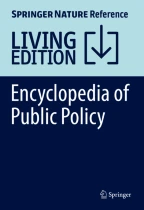
The concept of governance emphasizes the patterns of political steering, specifically the institutionalized relationship between public, private, and civil actors, in managing public affairs and addressing social problems (Knill & Tosun, 2020). Governance encompasses both hierarchical and non-hierarchical modes of political steering, with the recognition of non-hierarchical forms distinguishing it from traditional models of hierarchical intervention.
Governance is an essential concept in public policy studies. It gained widespread use in the 1990s as a response to the inadequacies of traditional government approaches in addressing complex policy challenges (Thomann, 2017). The emergence of the governance concept marked a shift from “government” to “governance”, promoting more inclusive and participatory decision-making processes. Today, governance has become a vital framework in academic and policy circles for addressing social, economic, and political.